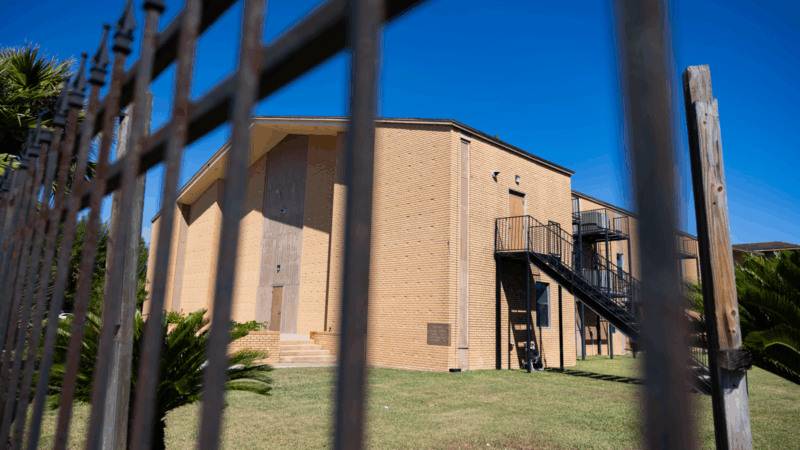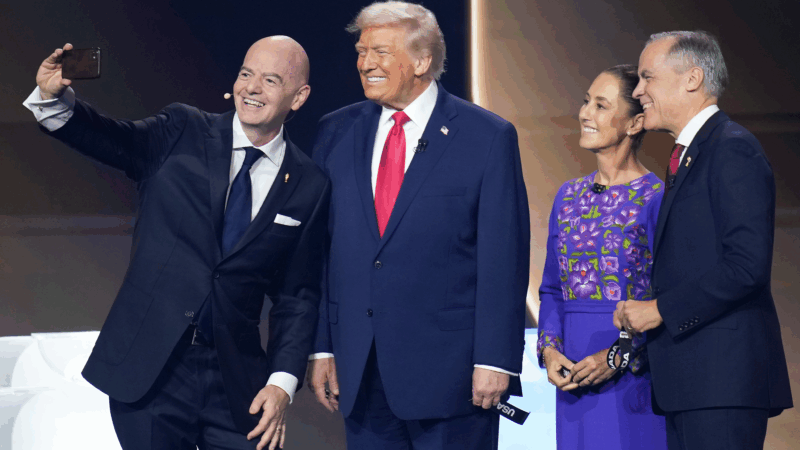After Kashmir attack, India downgrades ties with Pakistan and suspends water treaty
MUMBAI, India — The day after a deadly attack on tourists killed 26 people in the mountain town of Pahalgam in Indian-administered Kashmir, India announced it was closing a border with Pakistan, downgrading its diplomatic ties and suspending a crucial water treaty.
The Indus Waters Treaty lays out how India and Pakistan use water from six rivers that flow through both countries. It was negotiated by the World Bank in 1960 and affects hundreds of millions of people on either side of the border.
India’s foreign secretary, Vikram Misri, told reporters on Tuesday night that the treaty will remain suspended until Pakistan “credibly and irrevocably abjures its support for cross-border terrorism.” He added that no Pakistani national will be allowed into India anymore under a special visa program and asked such visa holders in India to leave the country within 48 hours.
Pakistan’s military advisers serving in the country’s high commission in New Delhi have a week to leave India. Misri said India will be withdrawing its counterparts from Islamabad too. These decisions, he said, were made in a meeting chaired by India’s Prime Minister Narendra Modi, who cut short a visit to Saudi Arabia to return to India following news of Tuesday’s attack.
Misri’s announcement came hours after Pakistan’s Defense Minister Khawaja Asif denied Pakistani involvement in Tuesday’s attack.
“This is the result of a Hindutva [Hindu nationalist] government exploiting and killing religious minorities, including Christians and Buddhists,” Asif told a Pakistani news channel. The attackers, he said, were India’s “homegrown rebels.”
Pakistan’s Prime Minister Shahbaz Sharif has called for a National Security Council meeting to address the situation Thursday morning.
India has long accused its western neighbor of stoking and sponsoring armed militancy in India-administered Kashmir, accusations that Pakistan denies. The Muslim-majority Kashmir region has been disputed between India and Pakistan since they became independent nations in 1947. Each country claims Kashmir in its entirety. They have fought three wars over it. Pakistan controls a smaller portion of the region, known as Azad Kashmir.
Tuesday’s attack on Indian civilians is being referred to as the worst since gunmen stormed the streets of Mumbai in 2008 and killed more than 160 people. Indian investigations later alleged the attackers were trained in Pakistan.
Indian media now allege Pakistani origins of the Pahalgam attackers, and analysts pointed to a speech Pakistan’s army chief Gen. Asim Munir made last week, reiterating support for Kashmiris’ struggle against what he called “Indian occupation.”
Analysts say thousands of civilians and Indian military personnel have been killed in Kashmir since armed militancy took root in the early 1990s. In 2019, the Indian Parliament passed a law that revoked the region’s administrative autonomy, which many in the ruling Bharatiya Janata Party had blamed for the violence that has rocked the Himalayan valley. For months after, mobile and internet communications were blocked, movement of Kashmiris was restricted and local politicians were detained in jails or their own residences.
The years since the clampdown saw a dramatic fall in the number of violent attacks. But in recent years, attacks have increased, often targeting Indian migrant workers from outside Kashmir. As in the Pahalgam attack, most of the victims have been Hindus.
In Tuesday’s attack, a little-known militant group called Kashmir Resistance claimed responsibility. In a post on Telegram, it said the attack was in retaliation for the “demographic changes” seen in the valley since 2019.
In the wake of the attack, leaders including President Trump expressed support for India, with the U.S. president posting on Truth Social that India had his “full support.” On India’s right-wing news channels, there are calls for retaliatory attacks against Pakistan.
Sushant Singh, a lecturer in South Asian studies at Yale University and a former Indian military officer, said that the jingoism surrounding the attacks eclipses the security and political failures.
“The fact that Kashmir is a disputed territory between India and Pakistan is well known. Pakistan has provided a lot of support, including training to armed militants who operate inside Kashmir. But the focus on Pakistan cannot obscure the questions of accountability from the Indian establishment, including India’s political leadership, that they have failed to keep a large number of Indian people safe in Kashmir,” he says.
Singh says that the Kashmir policy of India’s Hindu nationalist government has alienated residents of Kashmir, and cost the Indian army its vital network of local informers.
“It’s essentially more like domination and oppression than engagement and support. So, with this kind of politics, which is of exclusion and oppression and targeting, the emotional distance between Kashmir and Delhi has increased even further than what it has historically been,” he says.
Aakash Hassan contributed to this story from New Delhi.
Voting nears to a close in Texas primary that may be crucial to control of the Senate
The GOP and Democratic primaries mark a potential litmus test for what direction base voters want their parties to go ahead of midterm elections this fall that will determine power in Congress.
Pregnant migrant girls are being sent to a Texas shelter flagged as medically risky
Government officials and advocates for the children worry the goal is to concentrate them in Texas, where abortion is banned.
The 2026 World Cup faces big challenges with only 100 days to go
Will Iran compete? Will violence in Mexico flare up? And what about funding for host cities in the U.S.? With only 100 days left before it beings, the 2026 World Cup in North America is facing a lot of uncertainty.
A glimpse of Iran, through the eyes of its artists and journalists
Understanding one of the world's oldest civilizations can't be achieved through a single film or book. But recent works of literature, journalism, music and film by Iranians are a powerful starting point.
Mitski comes undone
She may be indie rock's queen of precisely rendered emotion, but on Mitski's latest album, Nothing's About to Happen to Me, warped perspectives, questionable motives and possible hauntings abound.
This quiet epic is the top-grossing Japanese live action film of all time
The Oscar-nominated Kokuho tells a compelling story about friendship, the weight of history and the torturous road to becoming a star in Japan's Kabuki theater.






